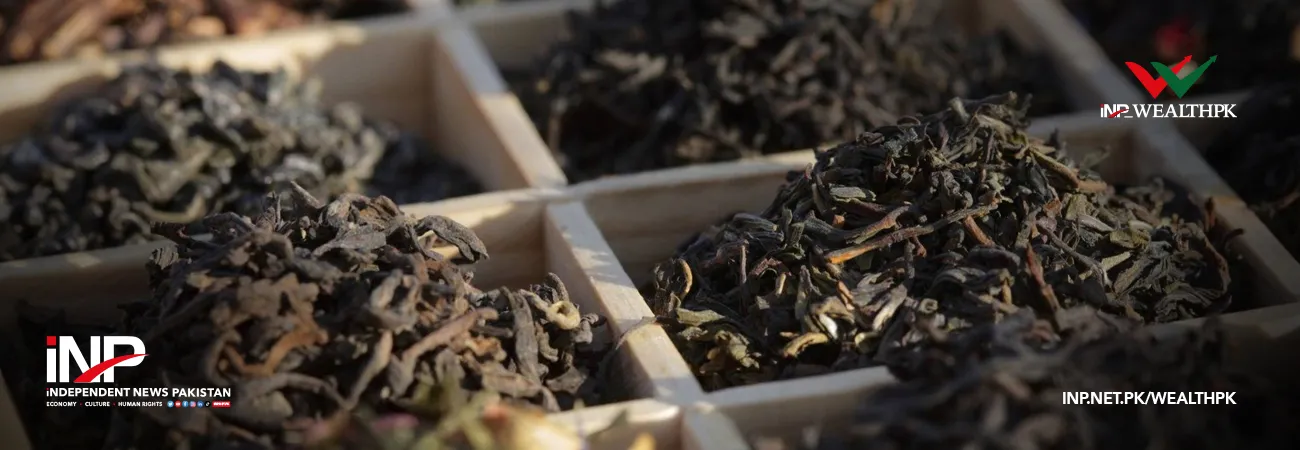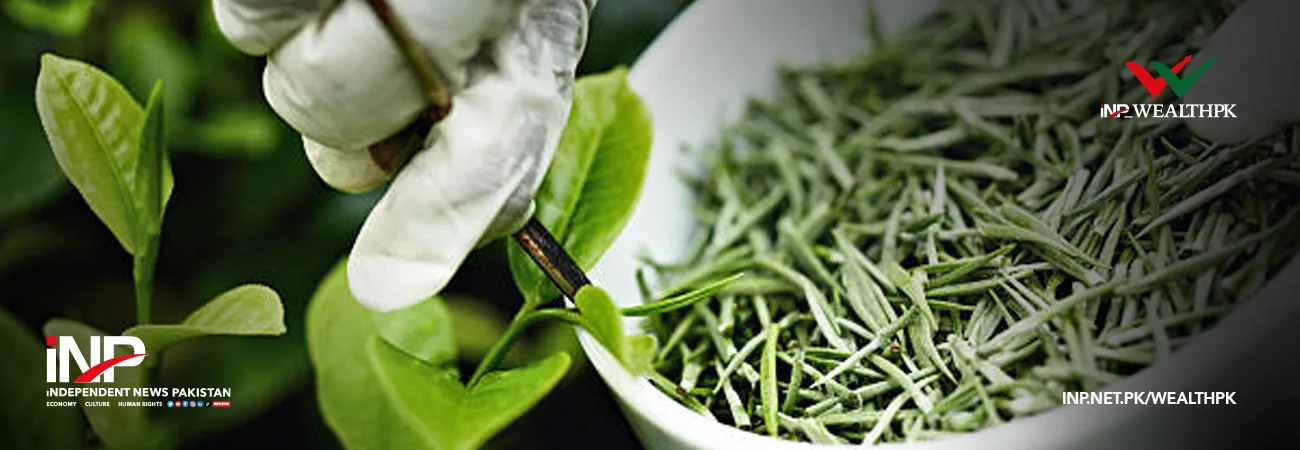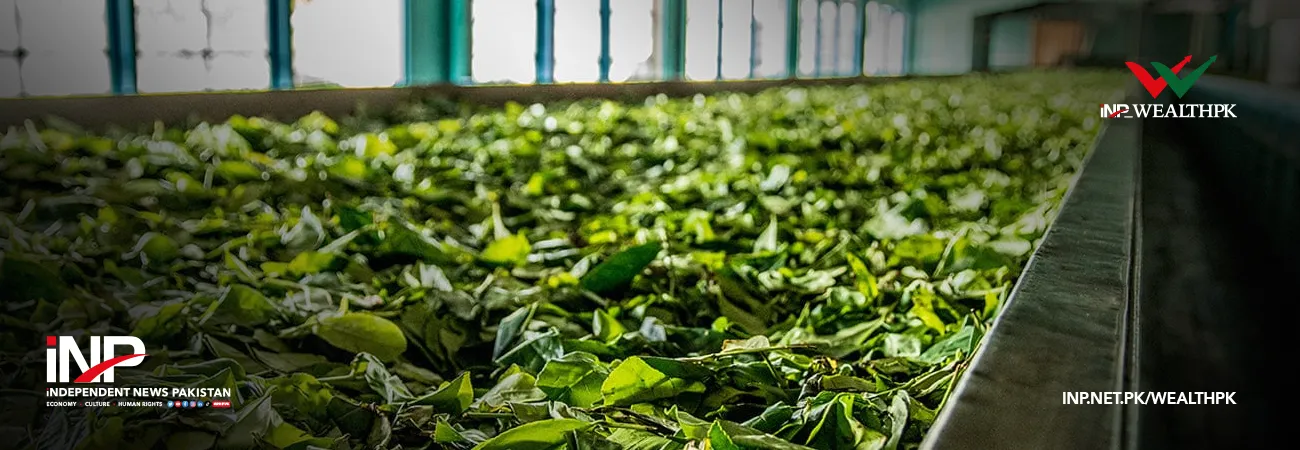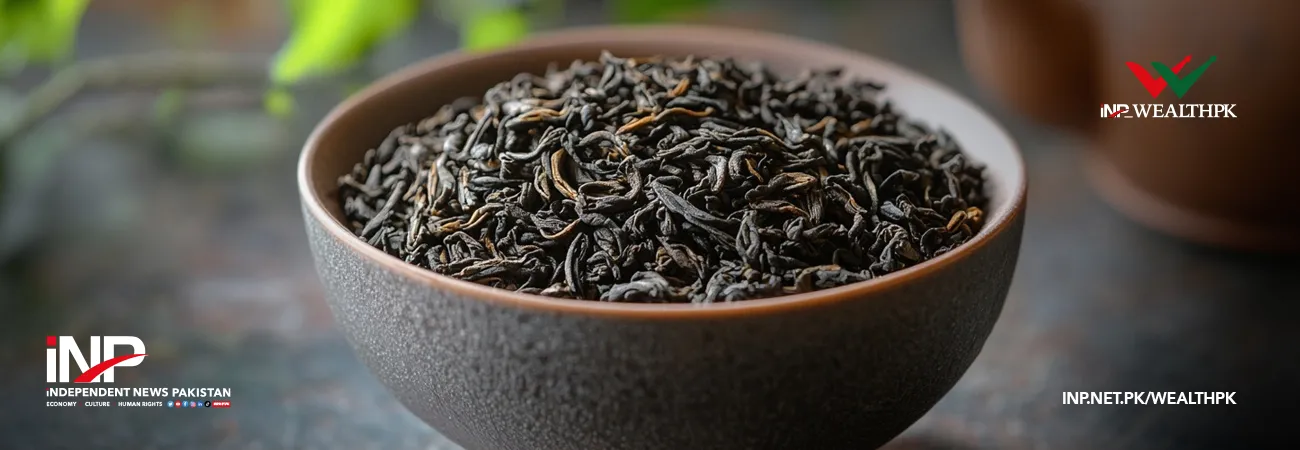INP-WealthPk
Saba Javed
The overall output of the large-scale manufacturing industry (LSMI) declined by 4.40% and remained at 115.45 points during July-January 2022-23 compared to 120.77 points in the corresponding period of 2021-22, with the base year 2015-16, reports WealthPK. According to the Pakistan Bureau of Statistics (PBS), the provisional Quantum Index numbers of the Large-Scale Manufacturing Industries (QIM) have been computed based on the latest production data of 123 items. On a year-on-year basis (YoY), the industry declined by 7.90% and remained at 126.85 points in January 2023 compared to 137.73 points in January 2022.

On a monthly basis, LSMI output recorded an increase of 1.48% and remained at 126.85 points in January 2023 compared to 124.99 points in December 2022, reports INP-WealthPK. 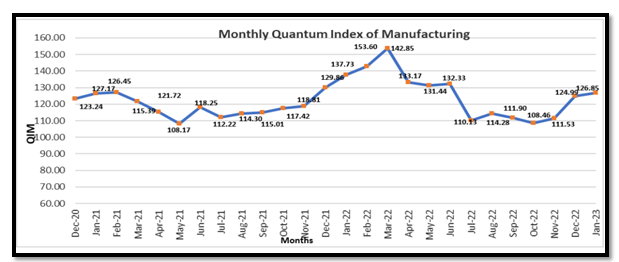
Source: Pakistan Bureau of Statistics
The provisional QIM is being computed based on the latest production data received from sources, including the Oil Companies Advisory Committee (OCAC), Ministry of Industries and Production (MIP), Ministry of Commerce and Provincial Bureaus of Statistics (BOS).
According to Arif Habib Ltd, the measures taken by the monetary and fiscal authorities to slow down the aggregate demand along with the rising cost of doing business led to the decline of LSMI as was evident from the decline in production of textile, paper, machinery, automobile and petroleum.
The production in July-January 2022-23 compared to July-January 2021-22 has increased in wearing apparel, leather products, furniture and other manufacturing (football) while it decreased in food, beverages, tobacco, textile, wood products, paper & board, coke & petroleum products, pharmaceuticals, rubber products, nonmetallic mineral products, fabricated metal, chemicals, iron & steel products, electrical equipment, machinery and equipment, automobiles and other transport equipment.
The main contributors to the overall growth of -4.40% were food (-0.32), tobacco (-0.55), textile (-2.71), garments (3.81), petroleum products (-0.69), cement (-0.86), pharmaceuticals (-1.22), and automobiles (-1.55).

The sectors showing growth during July-January included wearing apparel (44.47%), leather products (4.98%), furniture (73.80%) and other manufacturing (football) (48.26%).
The sectors showing decline during the July-January included food (1.90%), beverages (7.38%), tobacco (21.69%), textile (13.21%), wood products (67.81%), paper and board (3.80%), coke and petroleum products (9.86%), chemicals (3.58%), chemicals products (1.04%), fertilizers (5.31%), pharmaceuticals (21.92%), rubber products (7.68%), non-metallic mineral products (10.22%), iron and steel products (3.11%), fabricated metal (13.97%), computer, electronics and optical products (22.83%), machinery and equipment (51.92%), automobiles (34.85%), other transport equipment (38.49%).
During July-January 2022-23, the petroleum products production witnessed a decline of 9.86% as its indices went down to 89.33 from 99.09 during July-January 2021-22. High-speed diesel witnessed a 10.94% negative growth as its output remained 2.810 billion liters in July-January 2022-23 compared to 3.156 billion liters in July-January 2021-22.
Furnace oil witnessed a 7.62% negative growth in output and remained 1.373 billion liters in July-January 2022-23 compared to 1.486 billion liters in July-January 2021-22. Jet fuel oil witnessed a growth of 17.70% and remained 524.136 million liters in July-January 2022-23 compared to 445.324 million liters in July-January 2021-22. Kerosene witnessed a 32.48% negative growth in July-January 2022-23 and remained 55.933 million liters compared to 82.843 million liters.
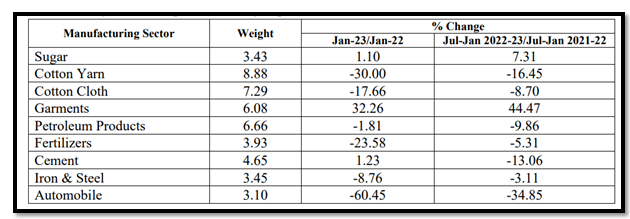
Cement production witnessed a 13.06% negative growth in July-January 2022-23 and remained 24.217 million tons compared to 27.854 million tons during the same period of last year.
One important measure of a country's economic strength is the expansion of its manufacturing sector. Industries support in the eradication of unemployment and poverty by generating jobs. It is essential that the manufacturing sector contribute to an economy's growth and job creation. In a nutshell, because of the poor LSMI production in January, the industry should place a greater emphasis on production.
Credit: Independent News Pakistan-WealthPk






